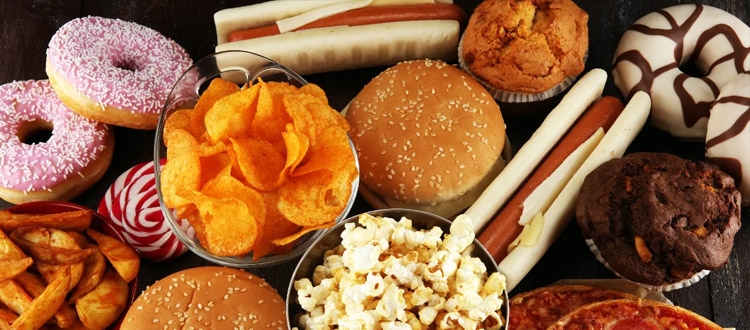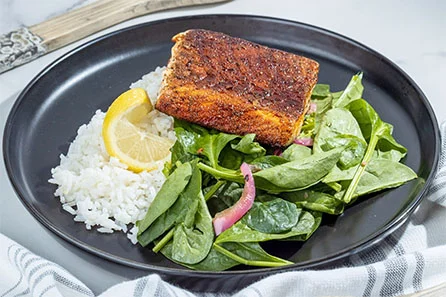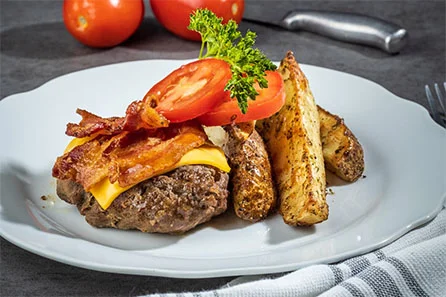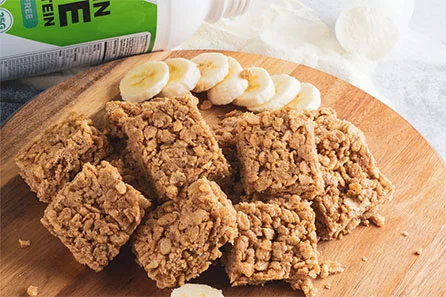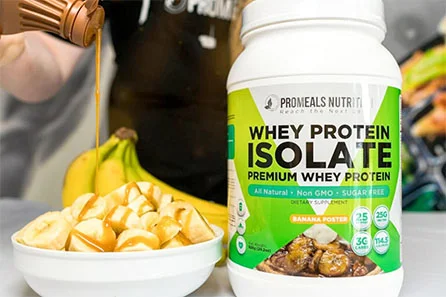What is junk food?
Junk food is foods that lack nutrients, vitamins, and minerals, and are high in kilojoules(energy), salts, sugars, and fats. Junk food is so-called because they don't play a role in healthy eating, especially if eaten in excess. Junk food is also known as discretionary food or optional food. Some examples of junk food include:
- Cakes and biscuits
- Fast foods (such as hot chips, burgers, and pizzas)
- Chocolate and sweets
- Processed meat (such as bacon)
- Snacks (such as chips)
- Sugary drinks (such as sports, energy, and soft drinks)
- Alcoholic drinks
If your diet is high in fats, salt, and sugar and is not receiving essential nutrients, your risk of obesity and other chronic (long-term) diseases may well increase.
These diseases include:
- Cardiovascular disease
- Type 2 diabetes
- Non-alcoholic fatty liver disease
- Several cancers
How do I make healthy food choices?
It's important to understand the nutritional value of the food you buy. You can do this by reading the nutrition label on the back of all packaged items in the USA. Food labels can tell you the amount of energy (kilojoules), protein, fat, carbs, sugars, fiber, and sodium in each product as well as the recommended serving size.
When assessing a product for its nutritional value, make sure to double-check health claims such as low in fat or sugar-free, as these can be misleading. When a product is advertised as light or lite, this may refer only to the product’s color or flavor. It means that the product may still be full-fat — be sure to check the nutrition information label at the back of the package for the actual fat content.
Another common claim is that a product is sugar-free or has no added sugar. In truth, this means that a product has no added sucrose or table sugar, but it may still contain other types of sugar. The product may also contain salt or fat and may be high in kilojoules, so even sugar-free products can be junk foods.
Note also that products known as healthy foods like fruit juices and protein bars can be junk food if they contain high levels of sugar, salt, or fat. Check all product labels for a better indication of how healthy the product is. Keep in mind that this rating system isn't accurate, but maybe a better guide than advertised claims.
Can I include a small amount of junk food in a healthy diet?
Yes, a small amount of junk food can be included in a healthy, balanced diet. This means you should only have junk food occasionally and in small amounts. In general, most people living in the USA eat too much junk food and should work on eating less of it, less frequently. It is important to balance your junk food intake with increased exercise to help burn off extra energy. These will help you avoid gaining excessive weight.
If you are trying to lose weight, minimize the amount of junk food you consume.
How can I reduce the amount of junk food I eat?
While it can be challenging, you don't necessarily have to give up on all your favorite foods.
Here are some suggestions on how to create healthy eating habits:
- Plan your meals and snacks and decide what you eat based on nutrition, not on what is left in the pantry. Planning also helps to keep to a budget and makes shopping simpler.
- Prefer food options such as wholegrain carbohydrates like pasta, bread, and flour.
- Choose fresh fruit for dessert instead of junk food to keep away added salt, sugar, and saturated fat.
- Check your food's nutritional value using the nutritional information label on the back of every product.
- Watch out for advertising tricks, including claims that a product has no added sugar, salt, keto, or fat. A product can claim to be reduced in fat as long as it has less fat than an earlier version of the product — but it may still be high in fat.

